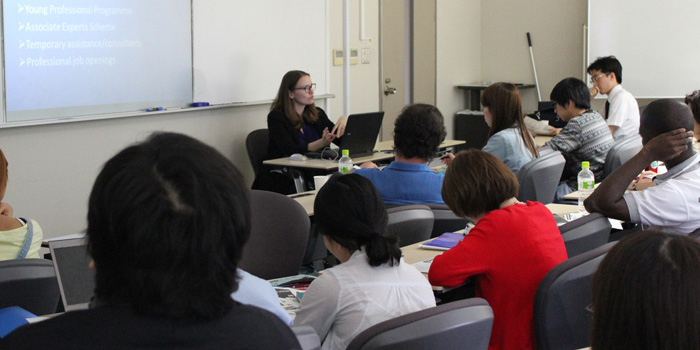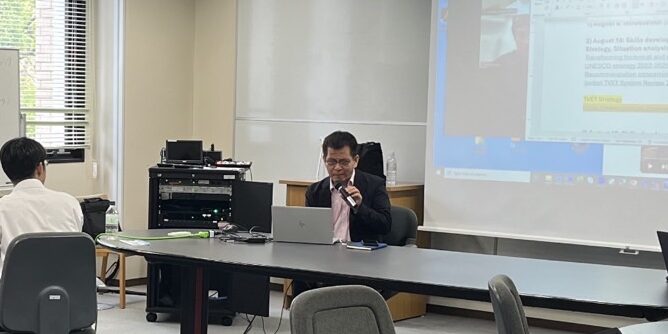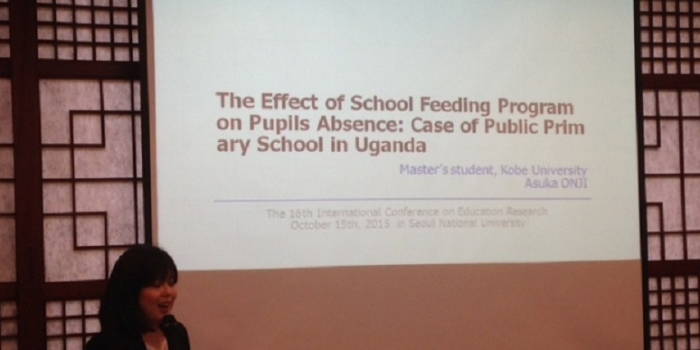From August 2023 to June 2024, I had the privilege of participating in the CAMPUS Asia double degree program, studying at the School of International Relations and Public Affairs (SIRPA) at Fudan University in China. This article shares my experiences during this enriching period.
CAMPUS Asia (Collective Action for Mobility Program of University Students in Asia) is an exchange program supported by the Education Ministries of Japan, China, and Korea since 2012. It is implemented by five universities, including Chulalongkorn University (Thailand) and the National University of Laos (Lao PDR), which joined the program in 2021. These five universities form a consortium and conduct exchange programs and dual degree programs to foster graduate students who will become experts in risk management in East Asia. To learn more about the program, see the program’s website.
Under this program, I enrolled in the School of International Relations and Public Affairs (SIRPA) at Fudan University as a double-degree student and belonged to the English-taught International Public Policy Program (IPP). SIRPA offers either a Master of Public Administration or a Master of International Politics. In the IPP program, students can learn policy evaluation, political theory, and international relations, which align with their research interests.
Regarding the coursework, during the fall semester, I took Quantitative Research Methods and Qualitative Research Methods to build a solid foundation in research methodologies. In the spring semester, my courses included Policy Analysis and Program Evaluation, Public Economics, and Global Public Policy, which provided me with practical policy evaluation techniques and advanced international relations theories. Additionally, I took Chinese Language and Chinese Society: Past and Present to learn about Chinese culture and society. I also took a course on Risk Management in the Development Process, in which professors from distinct universities belonging to the CAMPUS Asia Plus Program delivered lectures. This learning allowed me to deepen my understanding of cutting-edge risk management in Asia.
SIRPA places a strong emphasis on thesis writing, requiring students to pass four rigorous rounds of thesis review: proposal defense, pre-defense, blind review, and final defense. Despite his busy schedule, my supervisor at Fudan University, Professor Zhang Ping, was exceptionally dedicated, providing consistent support through regular meetings and frequent communications.
Beyond coursework and thesis writing, SIRPA offered numerous opportunities for cultural and academic exchanges. In the fall, the CAMPUS Asia Plus Symposium was held at Fudan University, bringing together professors and students from universities in the CAMPUS Asia Plus program. Additionally, exchange meetings were held in Beijing and Shanghai in the fall and spring with students participating in the CAMPUS Asia program at Beijing University. In addition, SIRPA organized excursions to historical sites and museums in China for international students. Through these activities, I was able to expand my network and spend valuable time thinking about career planning.
Finally, I would like to express my deepest gratitude to my academic advisor at Kobe University, Professor Keiichi Ogawa, for giving me this excellent opportunity and for his strong support and encouragement. I am also grateful to Professor Zhang Ping of Fudan University for his valuable comments and support in writing my master’s thesis. Moreover, I sincerely appreciate Professor Li Yin, the international office staff at SIRPA, the professors in charge of CAMPUS Asia at Kobe University, and all those who supported me.
Authored by Noa Yokogawa (Master’s student)
Related






